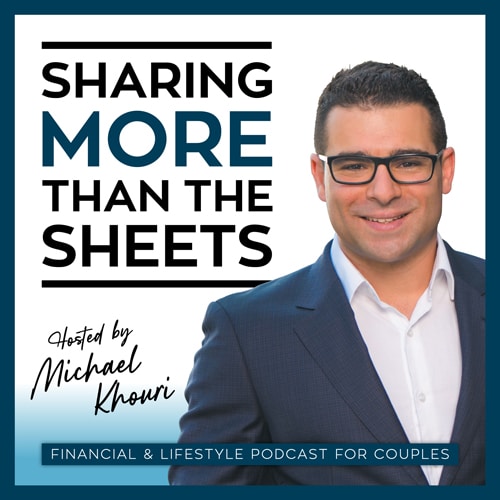Lower tax on your investments can help you reach your financial goals sooner. But don’t choose an investment based on tax benefits alone.
How investment income is taxed
You need to include investment income in your tax return. This includes what you earn in:
- interest
- dividends
- rent
- managed funds distributions
- capital gains from property, shares and cryptocurrencies
You pay tax on investment income at your marginal tax rate.
You’re allowed tax deductions for the cost of buying, managing and selling an investment. But there are rules around what you can and can’t claim as a tax deduction. See the Australian Taxation Office (ATO)’s investment income deductions.
Investing and tax can be complex.
Making capital gains or losses
Capital gains
If you sell an investment for more than the cost to acquire it, you make a capital gain. You need to include all capital gains in your tax return in the year you sell the investment. Capital gains are taxed at your marginal rate.
If you’ve held the investment for more than 12 months, you’re only taxed on half of the capital gain. This is known as the capital gains tax (CGT) discount.
The ATO has information to help you work out your capital gains tax on different investments.
Capital losses
If you sell an investment for less than the cost to acquire it, you make a capital loss.
You can use a capital loss to:
- reduce capital gains made in the year the loss occurs, or
- carry forward the loss to offset future capital gains
Positive versus negative gearing
Positive gearing
Positive gearing is where you borrow money to invest and the income from the investment (for example, rent or dividends) is more than the cost of the investment (interest and other expenses).
If you’re positively geared, you’ll have extra money coming in. But you’ll also have to pay tax on this income at tax time.
Negative gearing
Negative gearing is where you borrow to invest and the investment income is less than the cost of the investment.
Investors negatively gear as they can generally claim a tax deduction for the investment loss. The aim is for the capital growth to offset the loss in earlier years.
If you’re making an investment loss, it is still costing you money. You’ll need to have cash from other sources, like your salary, to cover interest and expenses.
Tax-effective investments
A tax-effective investment is one where the tax on your investment income is less than your marginal tax rate.
Choose investments based on your financial goals, risks you’re comfortable with and expected returns. Tax benefits should be a secondary consideration.
Superannuation
Super is a tax-effective investment and one of the best ways to save for retirement. This is because the government provides tax incentives to save through super. These include:
- A tax rate of 15% on employer super contributions and salary sacrifice contributions, if they’re below the $27,500 cap.
- A maximum tax rate of 15% on investment earnings in super and 10% for capital gains.
- No tax on withdrawals from super for most people over age 60.
- Tax-free investment earnings when you start a super pension.
Insurance bonds
Insurance bonds are investments offered by insurance companies. They can be tax effective if you’re planning to invest for 10 years and follow certain rules.
All earnings in an investment bond are taxed at the corporate tax rate of 30%. If no withdrawals are made in the first 10 years, no further tax is payable. They can be tax effective for investors with a marginal tax rate higher than 30%.
Investing and your tax return
Keeping good records will help you at tax time to:
- Report investment income.
- Claim all tax deductions you’re entitled to.
It will also help you calculate any capital gains or losses when you sell an investment.
For all investments such as shares, property and cryptocurrencies you need to keep records to show:
- How much you paid for it — contracts for purchase of the asset and receipts.
- How much you sold it for — contracts for the sale of an asset and receipts.
- Income you get from the investment — keep all records of income payments such as distribution statements, rental payment receipts and dividend statements.
- Expenses paid while owning the investment — receipts for payments made to manage, maintain or improve the investment.
You’ll need to keep records for five years after you included the income and capital gain or loss in your tax return.
.
.
Wealthness Pty Ltd ABN 13 231 248 112 [t/a Better Financial Planning Australia] is a Corporate Authorised Representative of Infocus Securities Australia Pty Ltd ABN 47 097 797 049 AFSL No. 236523. It is important to be aware that Better Financial Planning Australia is not authorised by Infocus to provide advice relating to credit services or property advice. Infocus is not responsible for any advice outside of the scope of this authorisation and should you wish to act on any of this general information, please first seek professional financial advice.
Wealthness Pty Ltd t/as Better Financial Planning Australia will endeavour to update the website as needed. However, information can change without notice and Wealthness Pty Ltd t/as Better Financial Planning Australia does not guarantee the accuracy of information on the website, including information provided by third parties, at any time.
This information is of a general nature only and neither represents nor is intended to be specific advice on any particular matter. Infocus Securities Australia Pty Ltd strongly suggests that no person should act specifically on the basis of the information contained herein but should seek appropriate professional advice based upon their own personal circumstances. Although we consider the sources for this material reliable, no warranty is given and no liability is accepted for any statement or opinion or for any error or omission.
Wealthness Pty Ltd t/as Better Financial Planning Australia does not give any warranty as to the accuracy, reliability or completeness of information which is contained in this website. Except insofar as any liability under statute cannot be excluded, Wealthness Pty Ltd t/as Better Financial Planning Australia and its employees do not accept any liability for any error or omission on this website or for any resulting loss or damage suffered by the recipient or any other person.
Wealthness Pty Ltd (ACN 613 313 250) [t/a Better Financial Planning Australia] Corporate Authorised Representative of Infocus Securities Australia Pty Ltd ABN 47 097 797 049 AFSL Licence No. 236523.
Source: ASIC MoneySmart



